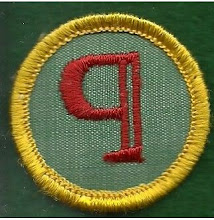There was a fantastic article in The Stranger by Cienna Madrid about Munchhausen-by-internet
(1)
A phenom we see all the time in publishing – an unusual
disease or disorder turns up in the news, which turns up a few months later in
a half-dozen manuscripts, which in turn takes all the mystery out of – say -- a
mystery novel. A friend who works for one of the big publishing houses said
there was a big uptick in stores about hoarders, people with odd jobs, extreme
chefs, and fishermen when those programs were first on TV – she called it “writer’s Munchhausen”. She knew it wasn’t an entirely accurate description, but the term
stuck with me.
(2)
A friend who was a school nurse said that she was constantly
looking at limps, stomachaches, headaches, blurry/double vision, cramps, fevers,
and yes, pregnancies -- that arose for various psychological reasons. She
estimated that three-quarters of the ailments she saw were imagined. She had a
variety of ways to determine if the ailment was real or not; although either
way she offered support to her students – and counseling.
(3)
… A revisit my own experiences with Munchhausen IRL (in real
life)
I had a benign cyst removed from one breast when I was in my
early twenties; the doctor did such a good job with the surgery that every
OB-GYN I’ve seen since has remarked on his work. Three years later I had
another lump in the same breast and a swollen lymph node, and went to the
doctor, biopsy reveals nothing, but I still felt crappy. Another round of tests
and the doctor said, you have no immune system left, get your affairs together
-- and handed me a stack of brochures about what to do at the end of one’s life.
I told my friends that I was dying and I certainly felt bad
enough to die for a week or so; I had a high fever, lost my voice, and could barely move from bed. A friend would come and take care of me –
make soup, share her experiences with chemo and radiation. I talked about my
dad’s battle with cancer and eventual suicide; she talked about feeling
suicidal.
One morning I woke up and felt… better. Over the next few
days I got well, and the better I got, the less I saw of my friend. She stopped
coming over and when I ran into her at the grocery store she poked me in the
chest and called me a liar, a faker. I didn’t know what to say.
My friends were mystified too, “Weren’t you supposed to
die?”
“They were wrong? I dunno.” (That sounded stupid, even to
me.)
I went back to my doctor, who pronounced me healthy – I’d
probably had the flu.
Twenty years later, I discovered[1]
that my test results and another had been mixed up; well, not exactly mixed up –
another patient and I had received the same diagnosis, but mine was false. (BTW:
sleuthing was required to find this out: it wasn’t written out in so many words
on my records.)
Over the next decades, weird little clusters of symptoms
would keep popping up – the most annoying was that I’d occasionally get buzzy
in the head and faint for no discernible reason. Was I having seizures? “Spells?”
I imagine if it had been 1900 I’d be diagnosed with a “female complaint.”
It took years to discover that I had severe food allergies,
but only if I ate certain foods in combination during a specific point in my
menstrual cycle; for instance, a garlicky white bean salad, shellfish and
strawberry shortcake eaten at the same meal would trigger every one of my
allergies at once. Immediately after my period I would feel a little headachey;
BUT just before my period I would go from headache to a faint. But not right
away – it took a few hours for all the allergens to work their magic on me.
My allergist said it was an anaphylactic reaction, made more severe by my estrogen levels.
She said, “Your body is going overboard protecting you in case you get
pregnant.” I knew nothing about anaphylactic reactions then, now most folks
know about anaphylactic reactions to bee stings and peanuts.
The allergist
suggested I join a group of other folks with food allergies. They offered tons
of support, understood when I said that people thought I was faking symptoms, offered
stories of their own—one man’s children thought he had Alzheimer’s, another
said her husband insisted on having a cat and didn’t believe she was allergic
to cats. “Or cat spit,” she said. “I’ve done a lot of reading and it’s the probably
the enzymes in the cat spit that I’m allergic to. I’d be fine with a spitless
cat.”
One woman in
the group was really keen on getting the details of all of our allergic
reactions—she would be bright-eyed and weirdly interested, for instance, when
one member of the group accidently ate something that had peanut oil in it and
had to go the emergency room – a few weeks later the exact. same. thing.
happened to this gal.
The others in the group believed she was lying, maybe even
faking outright, but weren’t quite sure what to do. Was she hurting anyone? Did
she fake stuff outside of group – had she really been to the emergency room? We
never found out. She left the group a few weeks later, telling us that she was
moving to San Francisco – we wondered if that was true and if it was, would she
join another allergy support group?
We decided that it was an endless chain.

No comments:
Post a Comment